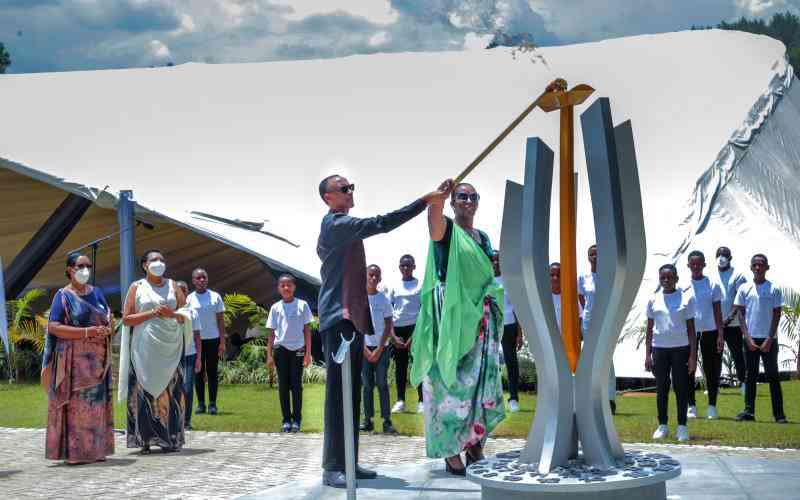×
The Standard e-Paper
Smart Minds Choose Us

This month marks exactly 30 years since the start of the three-month-long genocide in Rwanda that saw the mass murder of well over one million people as the world watched.
The genocide, which came on the heels of the downing of a plane carrying then President Juvenal Habyarimana, an ethnic Hutu, on April 6, 1994, led to killing of mainly ethnic Tutsis and moderate Hutus, including then Prime Minister Agathe Uwilingiyimana.







